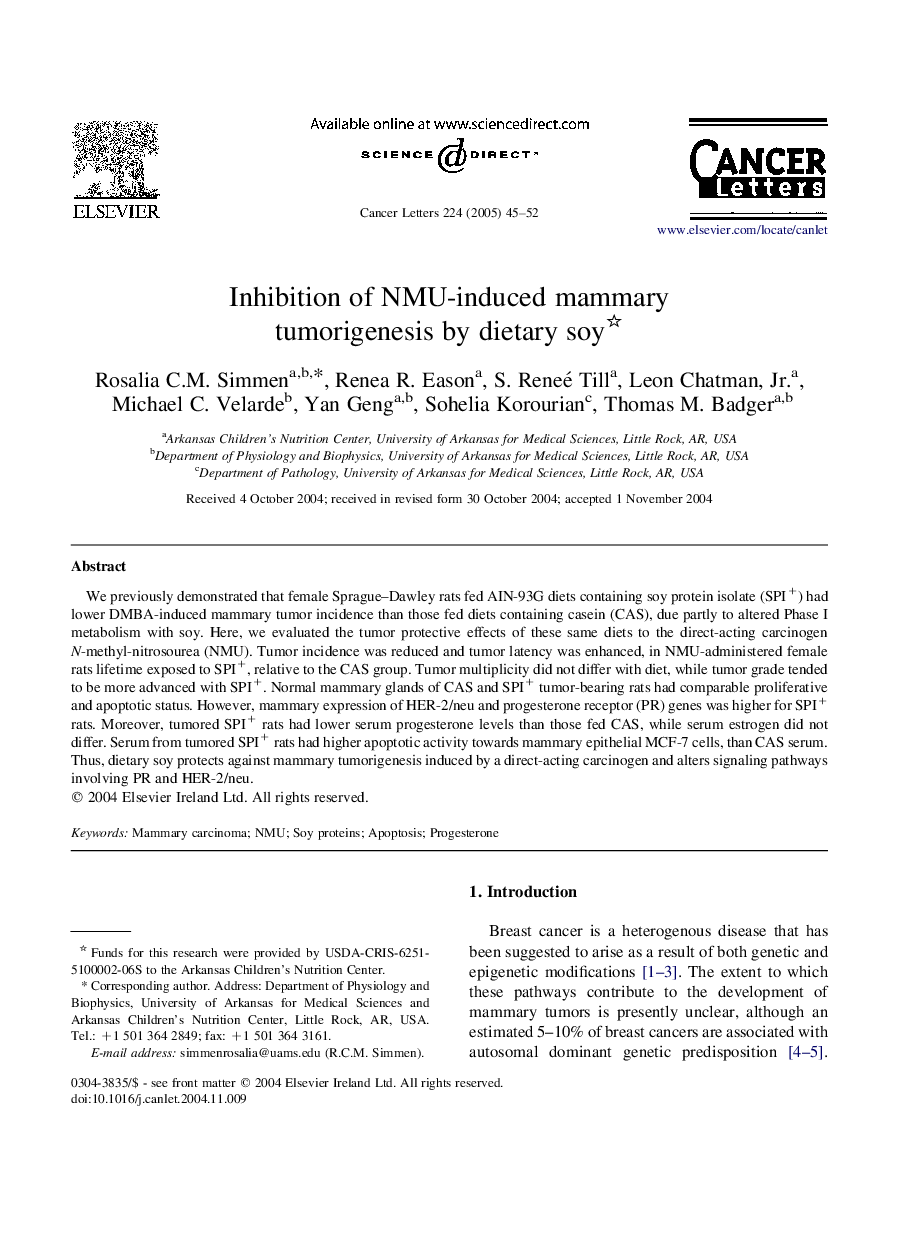| Article ID | Journal | Published Year | Pages | File Type |
|---|---|---|---|---|
| 10900252 | Cancer Letters | 2005 | 8 Pages |
Abstract
We previously demonstrated that female Sprague-Dawley rats fed AIN-93G diets containing soy protein isolate (SPI+) had lower DMBA-induced mammary tumor incidence than those fed diets containing casein (CAS), due partly to altered Phase I metabolism with soy. Here, we evaluated the tumor protective effects of these same diets to the direct-acting carcinogen N-methyl-nitrosourea (NMU). Tumor incidence was reduced and tumor latency was enhanced, in NMU-administered female rats lifetime exposed to SPI+, relative to the CAS group. Tumor multiplicity did not differ with diet, while tumor grade tended to be more advanced with SPI+. Normal mammary glands of CAS and SPI+ tumor-bearing rats had comparable proliferative and apoptotic status. However, mammary expression of HER-2/neu and progesterone receptor (PR) genes was higher for SPI+ rats. Moreover, tumored SPI+ rats had lower serum progesterone levels than those fed CAS, while serum estrogen did not differ. Serum from tumored SPI+ rats had higher apoptotic activity towards mammary epithelial MCF-7 cells, than CAS serum. Thus, dietary soy protects against mammary tumorigenesis induced by a direct-acting carcinogen and alters signaling pathways involving PR and HER-2/neu.
Related Topics
Life Sciences
Biochemistry, Genetics and Molecular Biology
Cancer Research
Authors
Rosalia C.M. Simmen, Renea R. Eason, S. Reneé Till, Leon Jr., Michael C. Velarde, Yan Geng, Sohelia Korourian, Thomas M. Badger,
